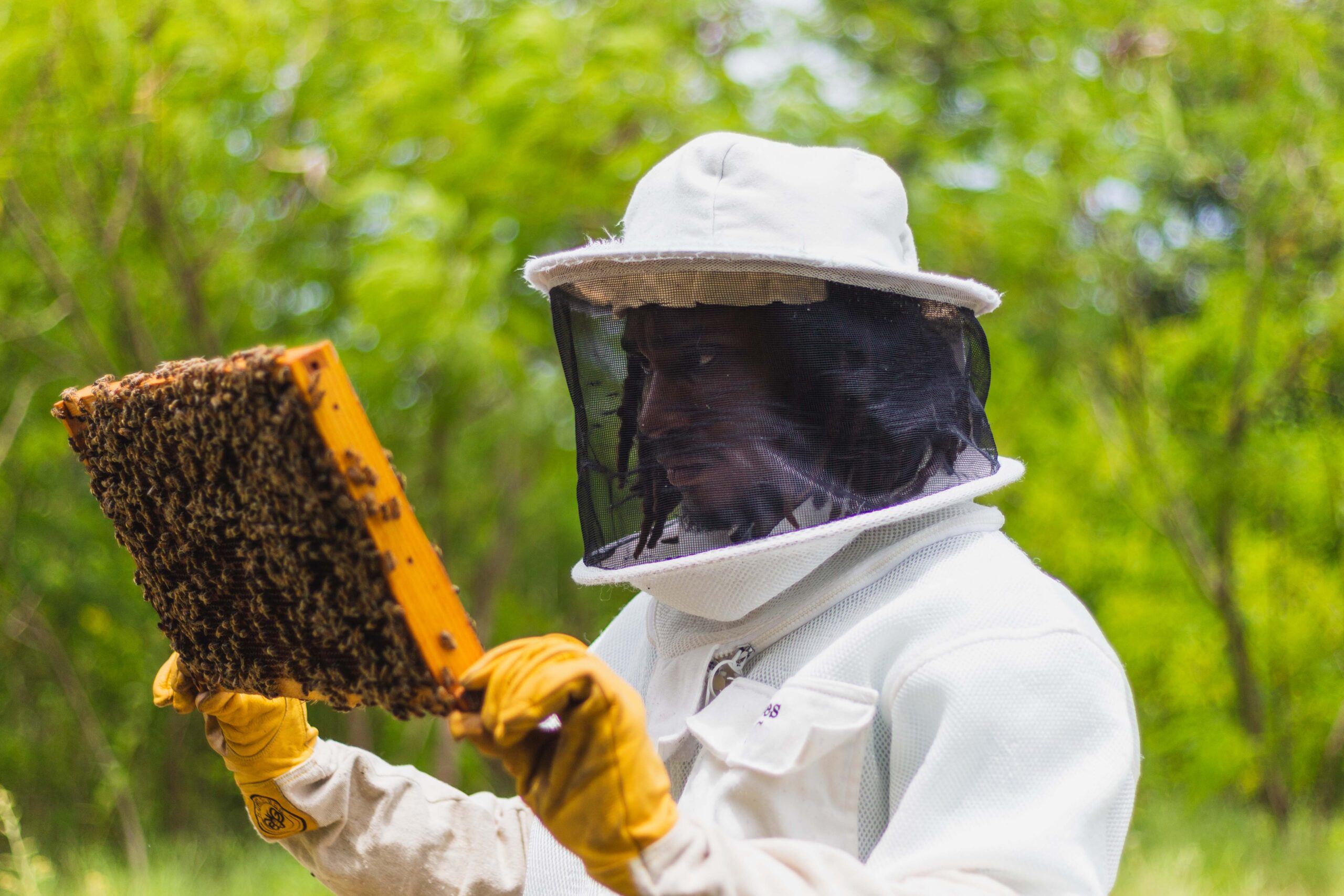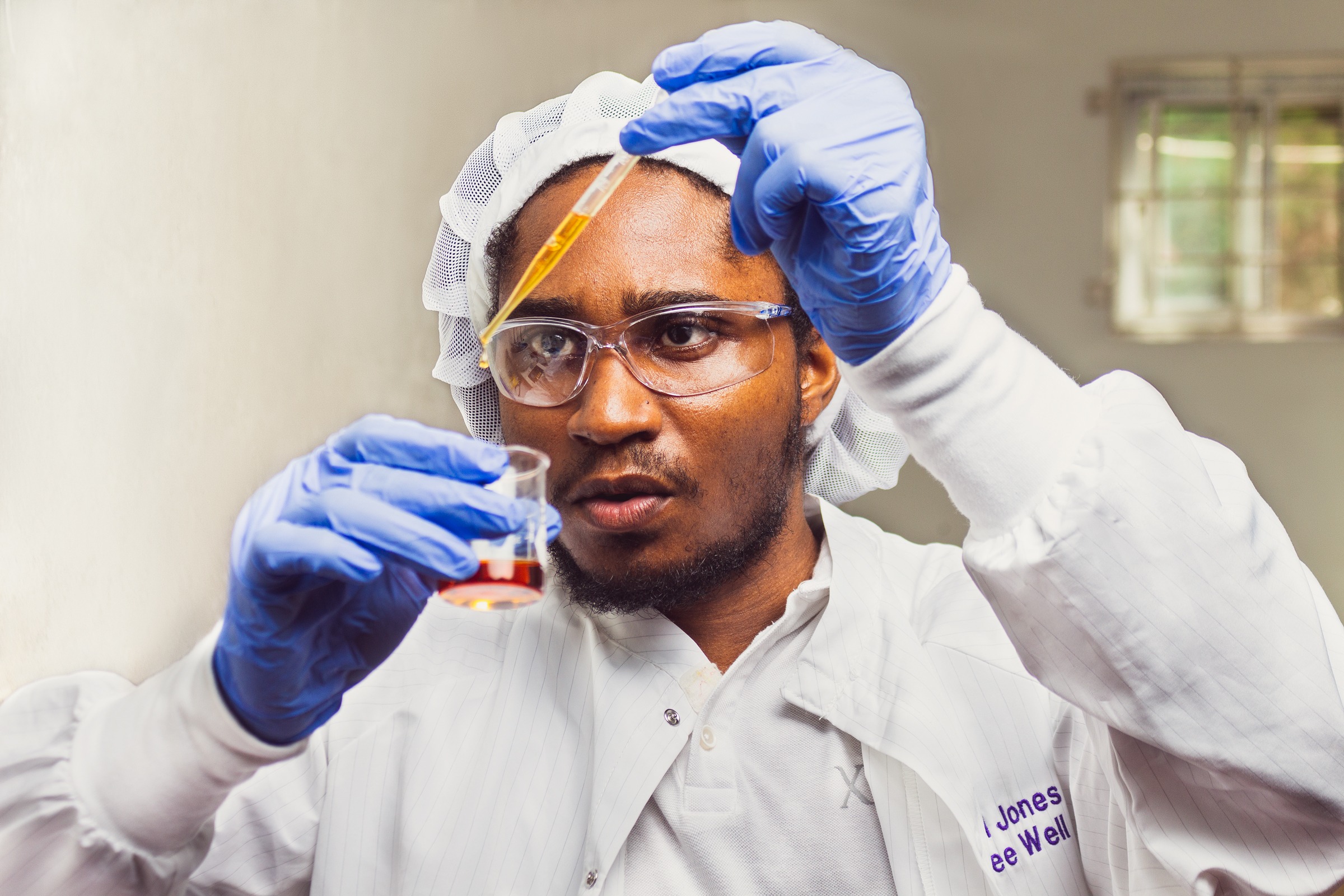
27 Jun From the Hive to the Home: Isle Bee Well Grenada
Samuel Jones describes himself as a science enthusiast who’s always been interested in Biomimicry, science that mimics nature. Drawing on his expertise as a science major, lab assistant, and beekeeper, along with his passion for wellness and environmental responsibility, Samuel has founded Isle Bee Well, an early-stage startup that creates personal and home care products inspired by the remarkable world of bees.
Initially, entrepreneurship was not on Samuel’s radar. However, when his job as a lab assistant at St. George’s University in Grenada was affected by the 2020 COVID-19 lockdowns, he was forced to pivot. At the time, he was already a few months into beekeeping and was fascinated by what he calls the “wisdom of bees”. Well before then, as a science student he’d recognised that many health and wellness challenges were caused by harmful ingredients in synthetic products used in the home.
With further research, he was convinced there was an opportunity to formulate safer, equally effective alternative products from beehive raw materials like beeswax, honey, pollen and propolis and the business was born.
Production that ensures the bees are well
Isle Bee Well takes a distinctive approach to sourcing raw materials. Rather than adopting a commercial bee farming model, Samuel has chosen to embrace the principles of biodynamic beekeeping. This approach prioritises the health and well-being of honeybees, allowing them to develop naturally. To achieve this, Samuel avoids practices that disturb and manipulate the hives and the queen bee in an attempt to maximise production of honey, for instance.
He explains that, “I don’t see business as just this one-dimensional thing where you just make profits, because whatever you do in a business or on a commercial scale, it has an impact on people and the environment…whatever it is I’m doing, I should be holistic in my thinking.”

Products
Isle Bee Well’s commitment to holistic thinking extends to minimising waste and maximising the potential of hive-produced resources. For example, Samuel emphasises the significance of propolis, a resin-like substance bees create to line the hive, which acts as the colony’s “external immune system”. In conventional beekeeping, this valuable substance is often scraped away and discarded. However, Samuel recognised its potential and used it as the foundation for his first formulation, Propolis Throat Spray, designed to provide relief for throat discomfort and persistent cough caused by COVID-19.
The spray also incorporates honey from the hive and other natural ingredients including ginger, mint, bayleaf, lemongrass and cinnamon and provides temporary relief of throat discomfort, cough suppression, nasal and chest congestion and to expel mucus.
Isle Bee well is also committed to generating less landfill waste. Samuel noted that, “Our home care line also boasts a refillable system of cleaning tablets, that when combined with tap water by the end user turns into the final cleaning solution. All that is needed is one refillable container, a pump or spray bottle, the cleaning tablet and tap water.”
In addition, only small amounts of any of the raw materials are needed in his formulations for all the products including facial moisturiser, lip balm, dish soap and beeswax wrap. In the case of raw honey, this allows him to leave the colony’s required amount undisturbed and only take from the surplus.
Challenges
Samuel readily admits that he’s a “science guy” who knew little about the world of business. However he credits the Eastern Caribbean Greenpreneurs Programme from which he recently graduated, with helping him to think clearly about his business model and how to quantify the potential positive impact of his business on people, planet and profit.
Nevertheless, Isle Bee Well faces challenges on its path to growth. Samuel acknowledges that retailers have been hesitant to carry his product, partly due to skepticism surrounding the new concept. Additionally, natural products often face more rigorous screening than their synthetic counterparts; consumers seek reassurance that products claiming to be organic adhere to global standards.
With this in mind, Samuel would welcome financial support and specific programmes to obtain certifications like COSMOS for organic and natural cosmetics and Ecocert, which covers over 150 social and environmental criteria. These certifications would add credibility to the Isle Bee Well product line. He also recognises the importance of dermatological and clinical testing but acknowledges the associated costs, which he estimates to be between US$12,000 and US$15,000.
Despite the challenges, Samuel remains motivated and finds joy in his work. He is confident that as the government in Grenada focuses on a new transformation agenda, there will be a more favourable attitude towards green ventures like Isle Bee Well. He optimistically envisions that Isle Bee Well will soar to new heights as it strives to bring the wisdom of the hive into every home.

